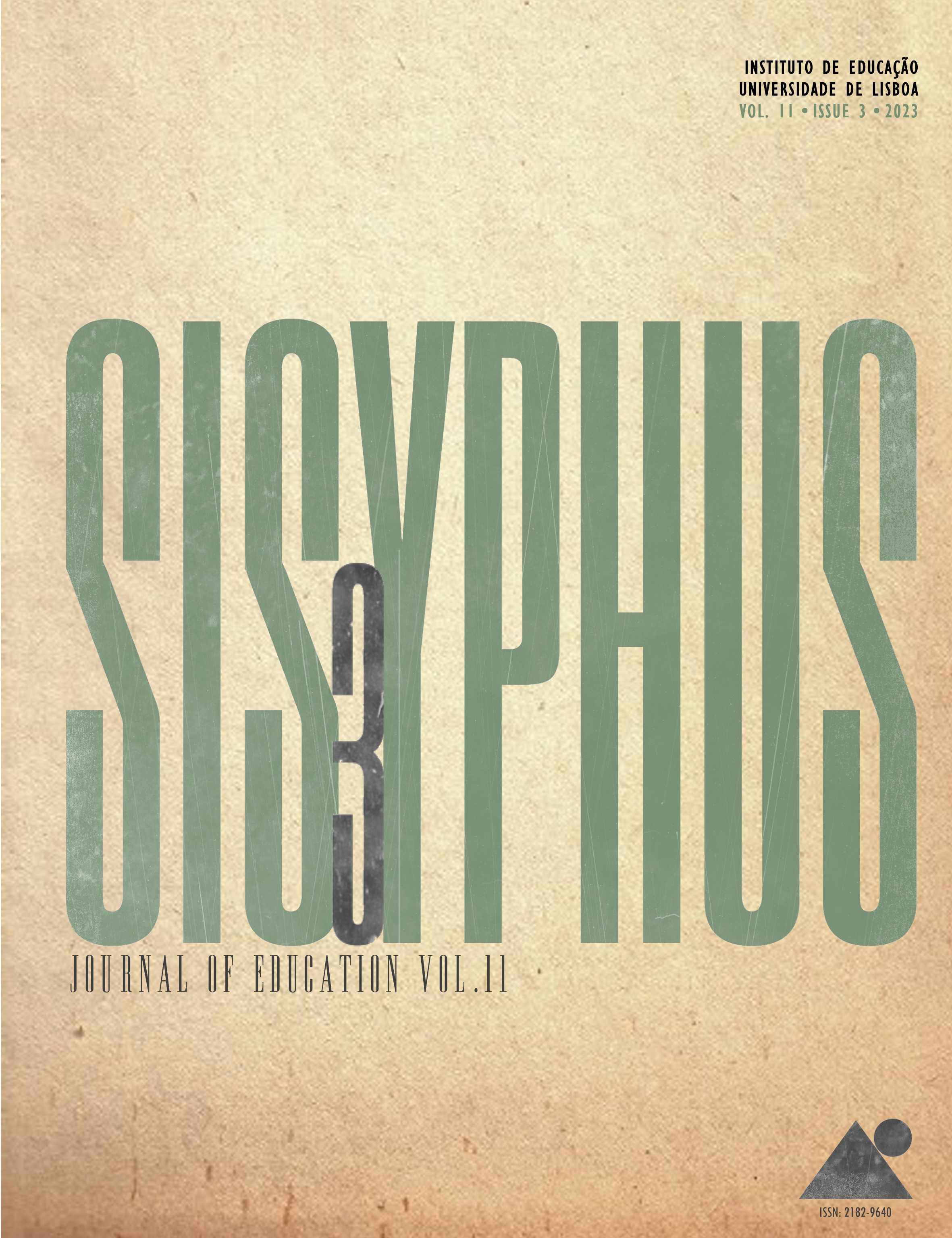Analysis of Online Education During the Covid-19 Pandemic from the Perspective of Feenberg’s Critical Theory of Technology
DOI:
https://doi.org/10.25749/sis.28797Keywords:
technological mediation, online education, educational technology, remote teaching, critical theory technologyAbstract
This article aims to analyse the challenges and possibilities of technological mediation in online education during the Covid-19 pandemic from the perspective of Andrew Feenberg's critical theory of technology. The tension between the meanings attributed to technology and its implication in the analysis of the use of educational technology is highlighted. As a methodological approach, qualitative bibliographic research was adopted. To address a critical approach to technology and its relation with education, the works of Feenberg and Selwyn were selected. For the analysis of the intensive use of technology in online education in the context of the pandemic, articles published between 2020 and 2022 that problematize remote teaching were selected. In conclusion, it was identified that the tensions and challenges of technological mediation in education require responses that go beyond the simple adherence or rejection of technology.
Downloads
References
Baggaley, J. (2020). Educational distancing. Distance Education, 41, 582-588. https://doi.org/10.1080/01587919.2020.1821609
Biesta, G. (2009). Good education in an age of measurement: on the need to reconnect with the question of purpose in education. Educ Asse Eval Acc, 21, 33-46. https://doi.org/10.1007/s11092-008-9064-9
Castañeda, L., & Selwyn, N. (2019). Reiniciando la universidad: buscando un modelo de universidad en tiempos digitales. Editorial UOC.
Feenberg, A. (2010). A fábrica ou a cidade: qual o modelo de educação a distância via Web? In R. T. Neder, A teoria crítica de Andrew Feenberg: racionalização democrática, poder e tecnologia (pp. 153-176). Observatório do Movimento pela Tecnologia Social na América Latina, CDS, UnB, Capes.
Feenberg, A. (2015). Tecnologia, modernidade e democracia. Inovatec.
Feenberg, A. (2019). Entre a razão e a experiência: ensaios sobre tecnologia e modernidade. Inovatec.
Hodges, C., Moore, S., Lockee, B., Trust, T., & Bond, A. (2020, 27 março). The difference between emergency remote teaching and online learning. Educause Review. https://er.educause.edu/articles/2020/3/the-difference-between-emergency-remote-teaching-and-online-learning
Mattar, J. (2022). Educação a distância, ensino remoto emergencial e blended learning: metodologias e práticas. In J. Mattar (Org.), Educação a distância pós-pandemia: uma visão de futuro (pp. 8-16). Artesanato Educacional.
Morozov, E. (2015). La locura del solucionismo tecnológico. Katz Editores.
Saldanha, L. C. D. (2008). Subjetividade no ciberespaço ou a aprendizagem nos labirintos do hipertexto. Revista @mbiente educação, 1(1). https://publicacoes.unicid.edu.br/index.php/ambienteeducacao/article/view/567
Saldanha, L. C. D. (2021). The Discourse of Remote Teaching During the COVID-19 Pandemic. JHETP, 21(4), 53-63. https://doi.org/10.33423/jhetp.v21i4.4207
Sampaio Junior. L. H. (2022). A Teoria Crítica da Tecnologia de Andrew Feenberg: reflexões sobre a inserção de novos elementos tecnológicos no ambiente escolar. R. Bras. Est. Pedag., 103(265). https://doi.org/10.24109/2176-6681.rbep.103i265.5198
Santos, E. (2010). Educação online para além da EAD: um fenômeno da cibercultura. In M. Silva, L. Pesce & A. Zuin, Educação online: cenário, formação e questões didático-metodológicas (pp. 29-48). Wak.
Selwyn, N. (2011). Education and Tecnology: key issues and debates. Bloomsbury.
Selwyn, N. (2014). Distrusting Educational Technology. Routledge.
Veloso, B., & Mill, D. (2022). Distance Education and Remote Teaching: opposition by the vertex. SciELO Preprints. https://doi.org/10.1590/SciELOPreprints.3506
Downloads
Published
Issue
Section
License
Copyright (c) 2023 Sisyphus — Journal of Education

This work is licensed under a Creative Commons Attribution-NonCommercial 4.0 International License.
Copyright (c) belongs to Sisyphus - Journal of Education. However, we encourage issued articles to be published elsewhere, provided that Sisyphus authorization is asked for and that authors integrate our original source citation and a link to our website.
Author Self-Archiving Policy
Author(s) are permitted to self-archive the final published version in institutional or thematic repositories, and in their personal or institutional websites.
DORA Signer
The Instituto de Educação da Universidade de Lisboa, Sisyphus' Publisher, is a San Francisco Declaration on Research Assessment signer.






